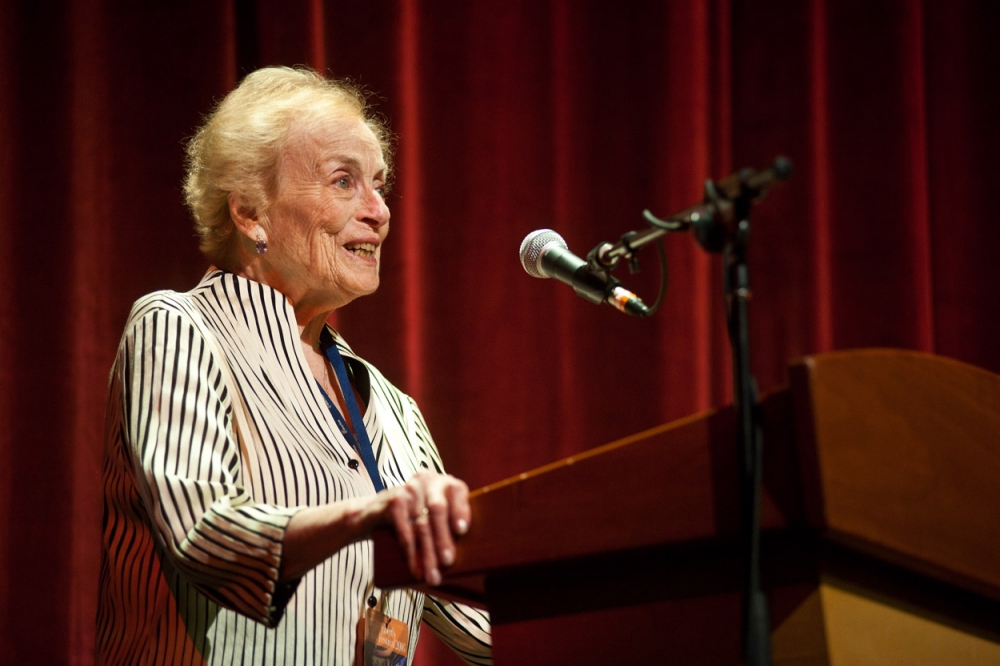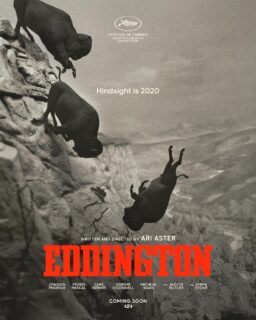Editor’s Note: The following article was written by Ebert Fellow Riane Lenzner-White of The Daily Illini.
Angela Allen is an award-winning script supervisor who has worked on a plethora of celebrated films including “The African Queen,” “The Dirty Dozen” and “Murder on the Orient Express.” She traveled to Ebertfest from England for Thursday’s screening of one of the first films she worked on, director Carol Reed’s “The Third Man,” a Vienna-set mystery that premiered in 1949.
On Thursday night, I spoke with Allen afterwards backstage at the Virginia Theatre. If there was one thing that stuck with me from our conversation, it was this: She never shied away from a chance to prove herself. As a woman in the film industry, she knew nobody was going to just give her a seat at the table; she pulled up a chair for herself.
The “African Queen” and “Beat the Devil” director John Huston once said Allen had the uncanny ability to read a script and predict exactly the running time of the finished film. In a time before the playback machine and Polaroid cameras, script supervisors (they called them “continuity girls” in England) served as the trove of information that kept films on track and on budget. Allen said she kept track of everything from the actors’ wardrobes to camera angles. They only paid her 15 shillings a week. Her organization and copious notes saved directors from countless expensive reshoots.
She said of working with Huston: “I have to say that I was very lucky in that you could make suggestions and you could point things out.”
And she contributed far more than visual consistency to the films she worked on. The avalanche scene in “The Man Who Would be King,” for example, was made possible by her ability to negotiate in French with the people who controlled the Atlas Mountains in Morocco.
While the women of her generation settled into their roles as secretaries and clerks, Allen said she simply was not subservient enough. At just 21, Allen traveled to bombed-out, post-World War II Vienna for “The Third Man,” for which she worked on director Carol Reed’s second unit. In our interview she remembered going toe-to-toe with Katharine Hepburn on “The African Queen,” whom she described as a “very formidable lady.”1
After seven decades in the business, Allen has the same spark that allowed her to become a relatively unsung pioneer for women in film. When she talks about her career, her eyes still light up. Decades later, her anecdotes are still embroidered with the same meticulous detail that makes her so good at her job.
“If they asked you a question, you answered with confidence,” she recalled regarding her director colleagues. “And if you ended up being wrong, you owned up to it.”











